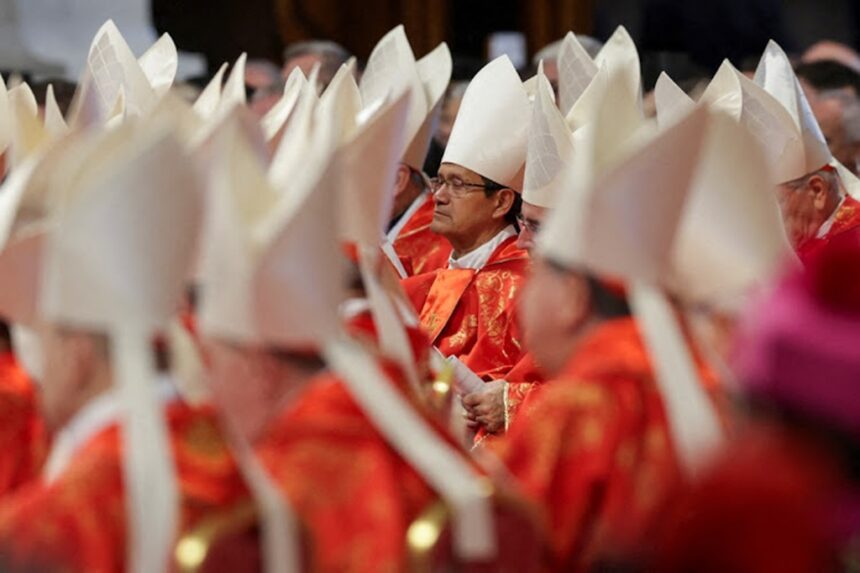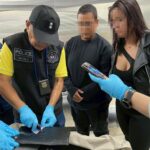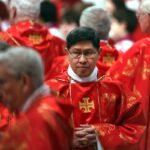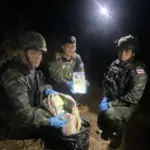VATICAN CITY — On May 7, 2025, the Sistine Chapel’s doors closed, signalling the beginning of the papal conclave to select the 267th head of the Roman Catholic Church. This process began after Pope Francis passed away on April 21 at the age of 88.
Inside the chapel, 133 cardinal electors from every continent gathered beneath Michelangelo’s famous ceiling. Around the world, people watched for smoke from the chapel’s chimney—black meaning no result, white signalling a new pope.
On Wednesday evening, black smoke rose, showing that the first round of voting for a pope ended without a decision. More ballots were set for Thursday.
The conclave follows a long tradition, always held behind closed doors and away from public view. It started with the cardinals processing into the chapel, chanting the “Litany of the Saints,” and swearing oaths of secrecy to keep their discussions private.
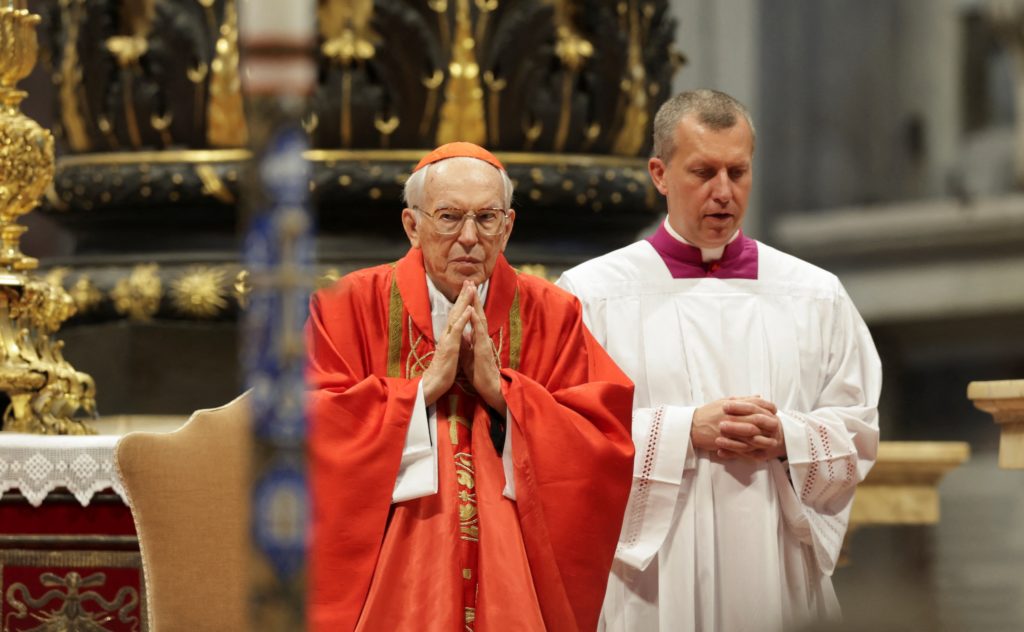
After Archbishop Diego Ravelli gave the Latin command “Extra omnes!”, everyone except the cardinals left. No outside contact is allowed, and even cell phone networks are blocked. Each of the 133 cardinals, all under 80, needs to secure two-thirds of the votes—89 in total—to become the new pope. Pope Francis, who served for 12 years, is remembered for his reforms and efforts to reach out globally.
St. Peter’s Square was filled with energy as over 45,000 people—including worshippers, tourists, and locals—gathered. Many filmed the black smoke with their phones. Maria Rossi, who owns a shop in Rome, described the atmosphere as “electric” and said she’d return the next day.
People in the crowd hoped the next pope would bring unity. The global interest showed the importance of this decision, with challenges like fewer nuns, debates about the roles of women, and disagreements within the Church ahead.
There is much speculation about who might be chosen, but conclaves are known for surprise outcomes. Cardinal Pietro Parolin, 70, who is the Vatican’s Secretary of State, has strong support and is seen as a steady choice who shares Francis’ approach.
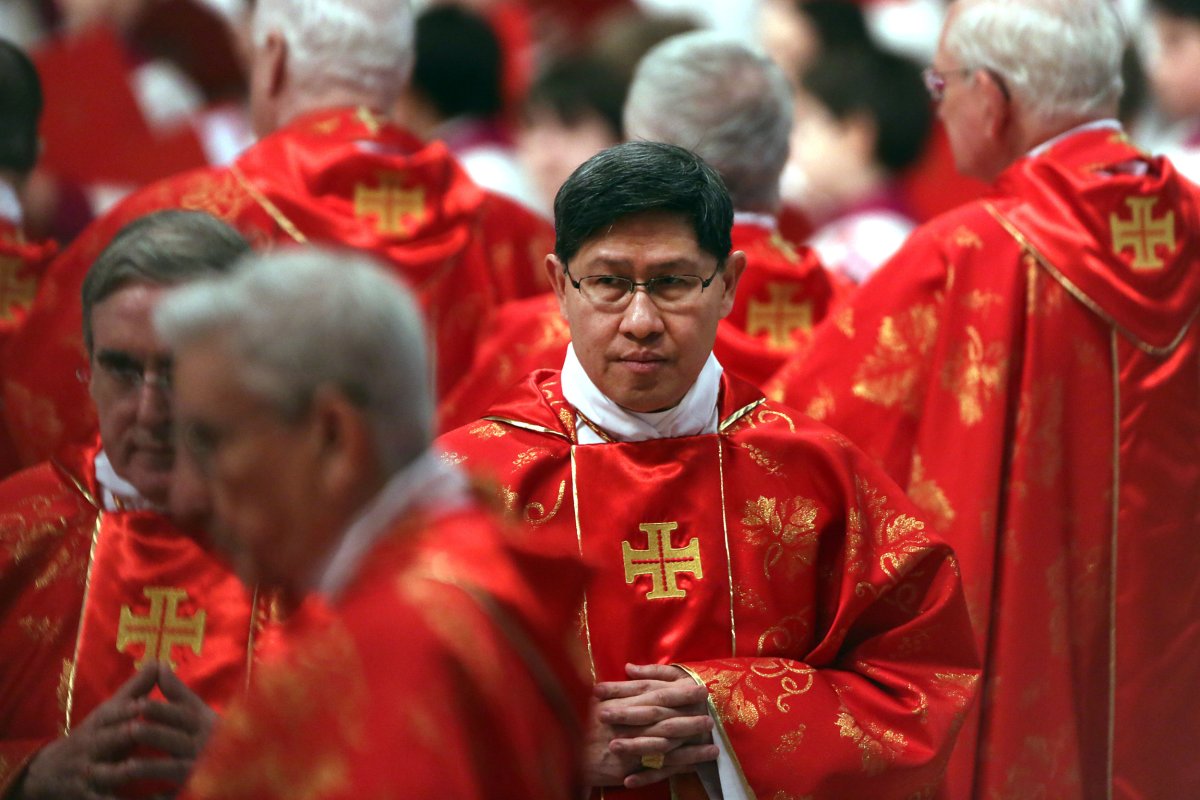
Betting agency William Hill placed its odds at 12/5. Cardinal Luis Antonio Tagle, 67, from the Philippines, is also a leading figure and is sometimes called the “Asian Francis,” though some wonder about his backing among fellow cardinals.
Other names that come up include Hungary’s Péter Erdő, 72, who appeals to conservatives, and Ghana’s Peter Turkson, 76. If elected, Turkson would be the first African pope in more than 1,500 years.
The group of cardinals reflects Francis’ focus on making the Church more global. Of the 133 electors, 52 are from Europe, 17 from Africa, 24 from Asia, and the rest from other regions. Francis named 108 of them.
This mix makes predictions tough, as many cardinals do not know each other well, which could help an unexpected candidate. Cardinal Luis José Rueda Aparicio of Bogotá said, “It’s an outsider’s game. Prayer, not politics, will guide us.”
Thursday will see up to four more votes, with two smoke signals planned to show progress. If no decision comes after three days, the cardinals will have a 24-hour break to reflect. Past conclaves sometimes moved quickly; Francis was elected in five rounds back in 2013.
Cardinals hope to finish the process by Friday to show unity after a time that saw both change and internal tension, including moves to give women a greater presence in the Vatican and pushback from some traditionalists.
As the conclave continues, Vatican News is streaming live from St. Peter’s Square, where both the media and the faithful are waiting for the white smoke and the announcement “Habemus Papam”—“We have a pope.”
The new pope will choose a name that reflects his vision, with “John” being the most popular choice in history. For now, the Sistine Chapel stays closed, its chimney in the spotlight, as the Church faces a key moment.




